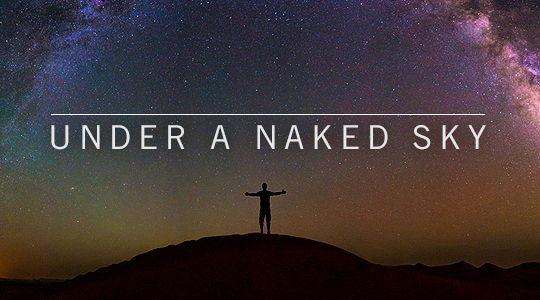Living in the Postmodern Age
By Scott Hughes
 “If religion once served as a sacred canopy of meaning, we since seem to have grown quite comfortable living under a naked sky.”1
“If religion once served as a sacred canopy of meaning, we since seem to have grown quite comfortable living under a naked sky.”1
Our last post explored identity formation in the pre-modern and modern ages. With the rise of the postmodern age, identities have become much more fluid. With options now being so limitless as to be overwhelming, Douglas Porpora, author of Landscapes of the Soul, asserts that, “schizophrenia is the postmodern emblem of self.”2
We often ask children this unhelpful and overwhelming question, “What do you want to be when you grow up?” Our question is probably contributing to the notion that what we do professionally is our identity. Then we tell children, “You can be whatever you want to be.” Perhaps an example will help us see why this discussion with children is not helpful. I like to eat and have a decision-making deficit disorder (I just made that up). Eating at a buffet can be more stress-inducing than enticing for me. The options seem limitless. I have a hard time limiting my choices to fit on one plate. Now think of the scenario we paint for children when we ask what they want to be when they grow up. It is as if we are asking them to pick only one item from a buffet – with no guidance about the quality of the items there!
We live in a multi-ethnic, religiously diverse culture, in an increasingly globalized society with options in abundance. No wonder we desire space to “find ourselves.” Society gives little to no guidance for identity formation, while also declaring we can be and do whatever we want.
Think again about the quote from Porpora above. Perhaps “living under a naked sky” explains, in parts, the pain, anxiety, and restless so prevalent in our society. How can we know with any confidence what we should do when we are so busy figuring out who we are? Uneasy with our self-perception and the anxiety we feel, we attach our identities to ideologies, social concerns, celebrities, fame, and whatever else we can to keep us from focusing on our uneasiness. We look to the sky for answers, and it seems silent, empty.
Reflection Questions for Individuals:
- What guiding principles shape your life? How do you decide what you choose to do or not do?
- If asked, how clear an answer would you give to the to the question “Who are you?”
- How well can you explain/articulate what makes you, you?
- Who/What do you believe to has had the largest influence on your identity?
Reflection Questions for Church Leaders:
How has the church influenced your perception of yourself?
